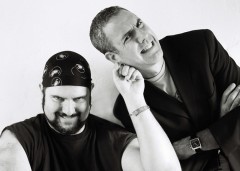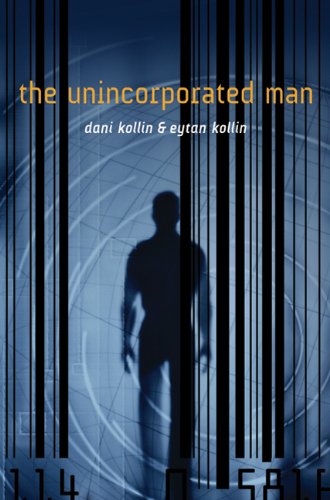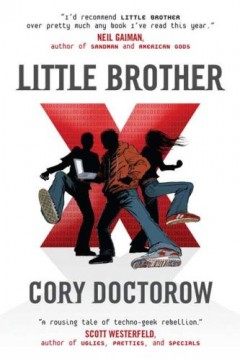
Justin Cord, protagonist of The Unincorporated Man (2010 Prometheus Award winner for Best Libertarian Novel) once quips that, “You often learn more about a situation from the questions than the answers.”

My highest praise for the book is for the questions it raises in the best tradition of social science fiction, questions that get us thinking about economic, legal, and even financial institutions in new ways. The book portrays a future society with a minimalist limited government, strong corporations, and a universal system of “personal incorporation.”
Each person is owned by a shifting combination of self and others through a joint stock arrangement set up at birth. Making corporations personal serves to amplify and universalize the conventional image of corporate titans maneuvering against each other for power and position. Everyone plays the “corporate game” and plays it with their whole lives, not just their jobs. Into this mix awakens one man from 300 years of suspended animation. Can he remain wholly self-owned? Will his ancient ideas of autonomy infect others and upset the new social order?
[continue reading…]
Help Promote Prometheus Unbound by Sharing this Post

Cory Doctorow’s Little Brother is a tale about tech-savvy teenagers as they rebel against a Department of Homeland Security crackdown following a terrorist attack on San Fransisco. A piece of YA fiction that even adults can enjoy — it’s YA largely because of its teenage protagonists and its educational aim at young people — Little Brother is the 2009 Prometheus Award winner for best libertarian novel. Little Brother also won the John W. Campbell Memorial Award and was a finalist for the Hugo Award.
Little Brother is set entirely in San Fransisco, California, in the very near future. Much of the technology in the story is already available, and what is not can easily be conceived as being on the horizon. The story is told entirely in the first person, from the point of view of the main character, Marcus Yallow. Marcus at first goes by the handle w1n5t0n (Winston in leetspeak, a homage to George Orwell’s 1984, as is the title of the book) but later switches to M1k3y (which could be a reference to the computer Mike in Robert Heinlein’s The Moon is a Harsh Mistress).
As the story opens, we are introduced to Marcus and three of his friends — Jolu (Jose Luis), Van (Vanessa), and best friend, Darryl — who ditch school to play an ARG (Alternate Reality Game) called Harajuku Fun Madness in and around the city. They happen to have the misfortune of being in the wrong part of town when terrorists blow up the Bay Bridge. In the chaos and confusion that follows, they get picked up by the Department of Homeland Security and then subjected to several days of interrogation and psychological torture in a “Gitmo by the Bay” before being released (with the exception of Darryl) with threats to keep quiet about their experience…or else. But once set free, Marcus and his friends are disturbed to see their city being turned into a police state.
Marcus resolves to fight back against the DHS, to restore civil rights and liberties and to free Darryl. He soon becomes the unofficial leader of a growing, decentralized movement of rebellious teenagers. But his covert struggle starts to put a strain on his relationships with his family and friends.
[continue reading…]
Help Promote Prometheus Unbound by Sharing this Post











